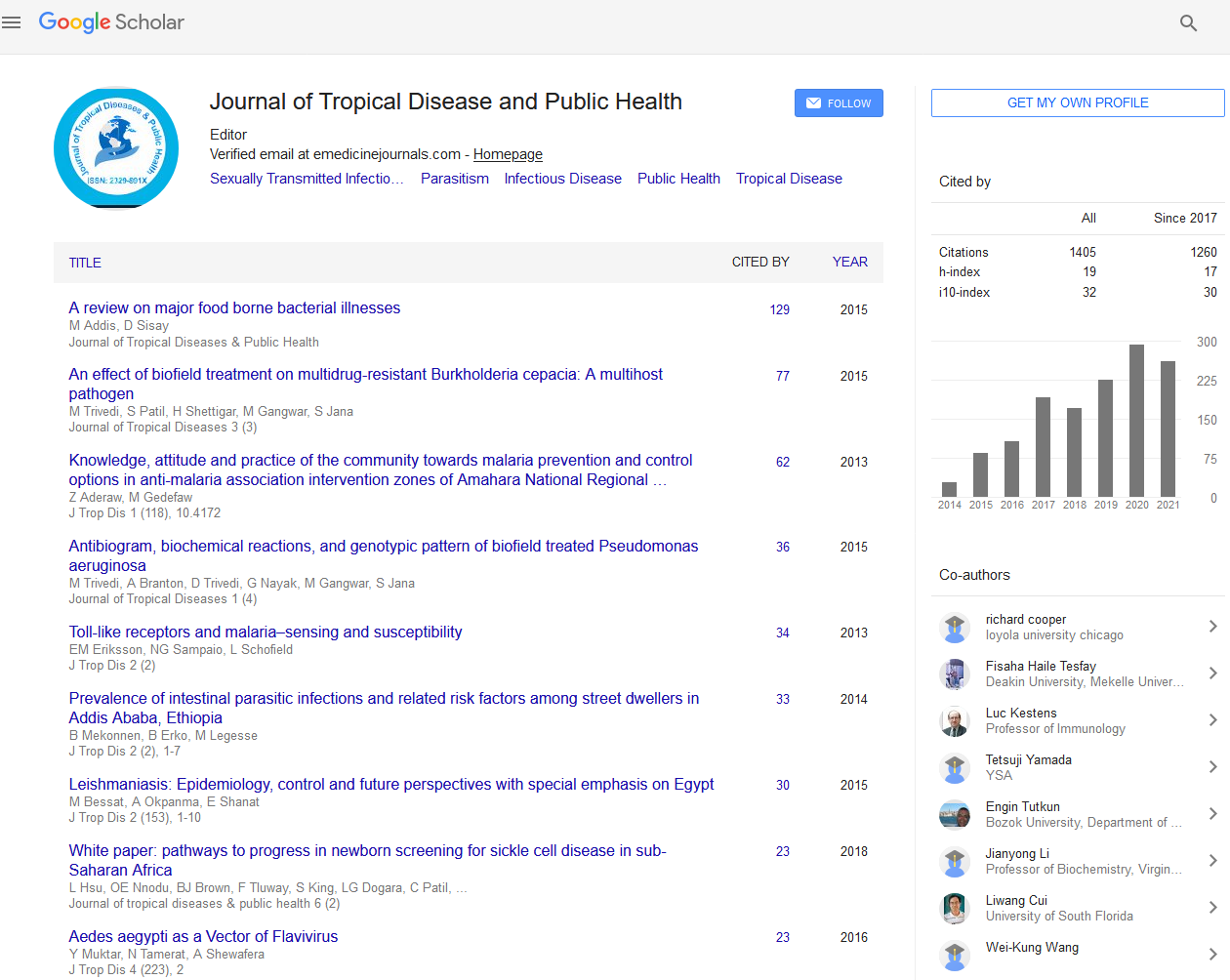Indexed In
- Open J Gate
- Academic Keys
- ResearchBible
- China National Knowledge Infrastructure (CNKI)
- Centre for Agriculture and Biosciences International (CABI)
- RefSeek
- Hamdard University
- EBSCO A-Z
- OCLC- WorldCat
- CABI full text
- Publons
- Geneva Foundation for Medical Education and Research
- Google Scholar
Useful Links
Share This Page
Journal Flyer

Open Access Journals
- Agri and Aquaculture
- Biochemistry
- Bioinformatics & Systems Biology
- Business & Management
- Chemistry
- Clinical Sciences
- Engineering
- Food & Nutrition
- General Science
- Genetics & Molecular Biology
- Immunology & Microbiology
- Medical Sciences
- Neuroscience & Psychology
- Nursing & Health Care
- Pharmaceutical Sciences
Abstract
Adherence to Antiretroviral Therapy in HIV-Positive Patients in Ethiopia: Review
Serawit Deyno and Alemayehu Toma
Background: Highly active antiretroviral therapy (HAART) offered HIV-positive individuals tremendous lifesustaining benefits. The benefits are sustainable only through optimal adherence. This systematic review was conducted to synthesize the available studies in order to determine average adherence, identify variables associated with adherence and shed light on the design and improvement of adherence studies and interventions.
Method: Studies were selected from electronic databases (Pubmed, Hinari, Google scholar) using HAART or Highly active antiretroviral therapy and adherence [Ethiopia] as search terms. Each study was summarized by using format containing: characteristics of the study, sample size, study design and measures of adherence, factors associated with adherence, reasons for missing dose.
Result: A total of 17 studies: 16 cross-sectional and 1 prospective study reporting adherence to HAART in Ethiopian HIV-positive patients were identified in our search items. Almost all of adherence to HAART studies conducted in Ethiopia used cross-sectional study design with self-report as adherence measurement. Though from the lowest evidence design the adherence rate in Ethiopia were higher than many developed countries report. Social support is major positive predictor of adherence to HAART while depression and substance abuse were negative predictors’.
Conclusion: We demonstrated a better self-reported adherence to HAART in Ethiopian HIV-positive patients. However rate and determinants of HAART in Ethiopian HIV-positive patients are poorly defined. The type of study design used and the use of self-report (subjective measure) in adherence assessment made adherence to HAART unexplored in Ethiopia. Further studies should be conducted using prospective cohort and interventional study design using varying methods of adherence measurement.


